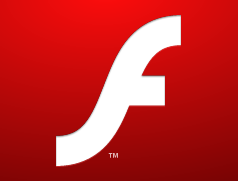
Microsoft's Windows team recently went through a massive management shift, which, as one would expect, resulted in the company changing its plans regarding future Windows updates and new releases. Windows Central published a big scoop on what is next for Windows in 2024, revealing alleged details about a new release with a heavy focus on AI and "groundbreaking features."
Back to one feature update per year
"Hudson Valley," the next-gen Windows release, will change (again) how Microsoft updates its operating system with new features. According to the report, Microsoft abandoned the idea of adding new capabilities to the OS with one or two updates every year. Now, it wants to release one yearly update full of new features.
Despite that, Windows 11 will most likely receive one more "moment" update in the first half of 2024 before Microsoft releases "Hudson Valley" somewhere in September or October. "Hudson Valley" will be based on the Germanium platform, and the first computers powered by it and ARM processors should hit store shelves in June 2024. Germanium will bring multiple improvements and platform enhancements that will benefit computers with ARM processors, such as the recently announced Qualcomm Snapdragon G Elite.

In other words, expect a wave of new devices with substantial changes under the hood. The new features planned for "Hudson Valley" will arrive in cumulative updates in a few months. For Windows existing Windows 11 users, "Hudson Valley" will be a major OS upgrade akin to moving from Windows 7 to 10.
What features?
AI, of course. A lot of AI. A big chunk of those features could require dedicated hardware as Neowin previously speculated, such as neural processor units (NPU). Windows Central claims Microsoft plans to introduce an AI-powered shell with an "advanced Copilot" working in the background to improve search, provide contextual insights, and more. Unnamed sources claim "Hudson Valley" will bring "groundbreaking" AI features.
Windows Timeline should make a comeback, this time with AI. Copilot will keep an eye on your stuff, allowing you to search for every instance, screen, app, or file containing a specific word or. Windows Search will get natural language support, giving users the ability to find files using descriptive language, like "a document where I whine about confusing Windows updates."

Other features should include video upscaling for media and games, better live captions, and AI-powered wallpapers with parallax effects. Do not forget about the Start menu and File Explorer. They should get a dedicated area for apps aimed at creators, working as a quick launcher for Microsoft 365.
With all the AI buzz Microsoft Build is generating, I'd like to show you the magic 🪄 of AI Depth effects for desktop backgrounds that are coming to Windows 11
— Albacore (@thebookisclosed) May 24, 2023
This is not a 100% seamless demo (app hosted) as the bits are still unfinished, but I'm sure it gets the message across pic.twitter.com/y7EwecIQ8Z
As for more useful features, expect much-improved energy efficiency, with battery life extended "up to 50% on certain hardware." It appears that Microsoft is already testing some of those bits in the latest Canary builds.
Finally, there is that mockup Microsoft showed last year. The company is toying around with the idea of moving the tray to the top of the screen and turning the taskbar into a dock. Windows Central claims Microsoft is still unsure if making such a radical change is a good idea. Therefore, it might not arrive in 2024, if ever.

Is it Windows 12?
Like with the taskbar, Microsoft has yet to decide what to call the next-generation Windows. Calling it Windows 12 might further segment the market, where Windows 10 currently has about a billion devices and Windows 11 roughly 400 million. Hundreds of millions of computers will not be able to upgrade to Windows 11, so Microsoft can make names simpler to make things look at least a bit tidier.
As it usually goes with unconfirmed reports like this (Microsoft declined to comment), take them with a grain of salt, and do not be surprised if the company decides to change its plans again. Whatever happens next year, 2024 shapes to be an interesting year for Windows and computers in general.
Source: Windows Central

















37 Comments - Add comment